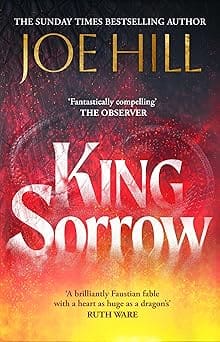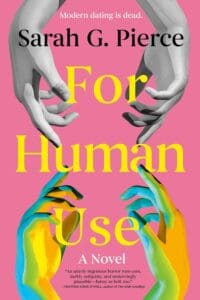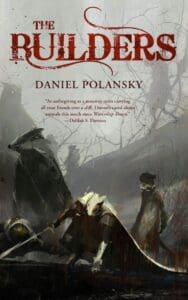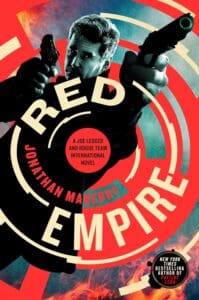
Synopsis:
Bookish dreamer Arthur Oakes is a student at Rackham College, Maine, renowned for its frosty winters and beautiful buildings.
But his idyll – and burgeoning romance with Gwen Underfoot – is shattered when local drug dealers force him into a terrible crime: stealing rare and valuable books from the exceptional college library.
Trapped and desperate, Arthur turns to his closest friends for help: the wealthy, irrepressible Colin Wren; brave, beautiful Allison Shiner; the battling twins Donna and Donovan McBride; and brainy, bold Gwen. Together they dream up an impossible, fantastical scheme that they scarcely imagine will work: to summon the fabled dragon King Sorrow to kill those tormenting Arthur.
But the six stumble backwards into a deadly bargain – they soon learn they must choose a new sacrifice for King Sorrow each year or one of them will become his next victim. Unleashing consequences they can neither predict nor control, this promise will, over the course of four decades, shape and endanger their lives in ways they could never expect.
Review:
“King Sorrow,” is Joe Hill’s first return to the novel in a decade, and whilst one may be tempted to resent the man for depriving us so for 10 long, hungry years, forgiveness arrives swiftly, about a page or so in. Worth the wait would be an understatement. Sooooo… how does one begin when reviewing an objective masterpiece? Something so full of force? Of grace? Of adventure? I can try, I suppose. “King Sorrow,” is a novel that worships at the altar of language and stories, and imagination. It appreciates the architecture, the gravity, the power of words, and demonstrates its thesis by being itself a flawless example of all it pays ode to. Was that pretentious or cool? Sorry. Having finished it- having spent a week with my head buried in its (many, many) pages, my heart swollen with what can only be called genuine wonder, I find myself at a little bit of a loss now. Bereft, perhaps. “King Sorrow,” releases October 21st (from Headline in the UK and William Morrow in the US) and whilst reading it early has been nothing short of an utter privilege, I’d be lying if I said I wasn’t keenly, unflatteringly jealous of those yet to embark for the first time. Enjoy it.
Now, I usually put a brief plot summary here, but I’m not going to do that today. First and foremost, I believe you should go in relatively blind, trust me, you’ll have a good time, what more could you possibly need to know? Secondly, as my long-suffering family will attest, when you try and summarise a sprawling 900 page horror fantasy novel about dragons and pacts you don’t quite do it justice. “So uh basically, there’s these six friends and umm one day…” No. Let’s address the elephant-sized elephant in the room instead. It’s a door stop. Massive. With that, comes three concerns. Can such a leviathan plot be tied into a neat ending? Will reading this book for more than half an hour at a time do significant nerve damage to my wrists? And, when it’s a book written by an author as wildly successful as Joe Hill, have the editors simply let him run riot? No word of a lie, I would have read another 300 pages. Another 500. Fuck, give me another 900. You would be forgiven for assuming a novel of such brobdingnagian proportions plods, and yet, “King Sorrow,” is almost relentless in its pacing- much like “Heart-shaped Box.” It soars.
There’s something intimate about watching a cast of characters come of age. Joe Hill gives us that in Book One, followed by another 40 years, in which we continue to follow them- Arthur Oakes, Donna and Donovan McBride, Colin Wren and Allison Shiner- names that are as imprinted in my brain as Cory Mackenson and Beverly Marsh and Stu Redman. Old friends. With 40 years comes so much loving and living, breaking and healing. Teenage love, heart-break, friendship, loss. Hill’s characters are increasingly flawed, increasingly human, forever messy people, and they, more than any dragon, give “King Sorrow,” its fire.
“King Sorrow,” is a novel full of sliding doors and hindsight, thick with dramatic irony for its readers. It briefly references, for example, in 2006, businessman and small-time political candidate Donald Trump, or in 1995, Osama Bin Laden, who is brushed off as a nuisance after his failed 1993 attack on the World Trade Centre. These casual references make “King Sorrow,” feel like a novel full of unexplored alternate timelines- as if it weren’t big enough already. Hindsight also proves to be a wonderful thing for the reader, who will inevitably feel some big, mean emotions, when, what (upon reflection) seemed obvious, happens. Sorry, I’m still healing, I digress. “King Sorrow,” is hugely referential, grounded in history, real world atrocities, and real world injustices. I felt the same transportive wonder reading this book as I did with many a childhood classic, although Hill does not offer an escape to Narnia, but the chance to look back and then look inward.
As ridiculous as this may sound dear reader, there is more in these 900 (896 if we’re accurate) than 900 pages could logically contain- karma and comeuppance, responsibility and causation, faith and sexuality, technology and balance, greed, hubris and morality, conspiracy and corruption, trauma and grief, the conflict between the existence of both God and suffering. Each sentence feels crafted, deliberately and meticulously to pose yet another big question, it raises debates on euthenasia and abortion and government monitoring and capitalism and a dozen other moral fault lines. It’s a novel that I could write an essay about, and one day soon, people smarter than me will. For now though, I’ll tell you that it’s raw and painful, and has indeed done measurable damage to my wrists, so let me conclude with a spoiler of sorts- when “King Sorrow,” is released, people will rave about this book, and, frankly, they’re fucking right to.









Leave a Reply